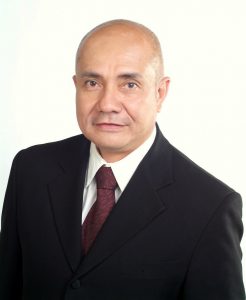Filipino Immigrant lawyers share their stories and advice
Filipino Immigrant lawyers share their stories and advice
By Michelle Chermaine Ramos
The Philippine Reporter

Rose Celiz of Celiz Law
ROSE CELIZ, CELIZ LAW
Rose Celiz graduated from Central Philippine University and worked as an assistant city prosecutor in the city of Iloilo prior to moving to Canada with her family in 2001. Like many newcomers, she struggled balancing finding a job and getting accredited while raising her three children as their eldest was only 12 years old at the time.
Try to find any job in the legal field to avoid deviating from it
“I made up my mind from the start that upon landing here I would not work in any field except the legal field because many have said that if you spend too much time in an unrelated survival job, you might forget how to practice your profession and get stuck,” she said. She first applied to some law firms who asked if she had Canadian experience, so she took a law clerk course just to get her foot in the door.
Volunteering is a creative way to get Canadian experience
However, there were other technical challenges with that as well. “Typing speed was also a challenge because back in the Philippines I had a secretary and rarely had to do any typing. Here, they have a required minimum typing speed and my typing speed was low so getting a job as a clerk was difficult,” she recalled. Determined to work her way up, she even volunteered at a law firm just to get the Canadian experience on her resume and to get an idea of how a law office operates here because it is different in the Philippines.
The effort paid off as she eventually got a job with the Ontario Court of Justice in 2004 where she worked full time while applying to law schools. Fortunately, she was not required to take the LSAT (Law School Admission Test) because of her years as a practicing lawyer in the Philippines. She got accepted by the University of Windsor and asked her court manager to temporarily transfer her to work at the court in Windsor so that she could study part time to complete the eight subjects required by the National Committee on Accreditation. However, the university insisted that she had to be enrolled full-time to complete all subjects from scratch including the ones that she did not need to upgrade her credentials. Since this was financially unfeasible and she was not ready to give up her job, she decided to take the self-study route and the challenge exams in 2009. Since she was still working full-time, sometimes she had to take a month off without pay just to prepare for these exams and her employer was very supportive during this period of almost four years.
If you don’t ask for an extension to complete the exams, the answer will always be no.
“I asked for an extension and they were very considerate. I told them I was a full-time mother and had a full-time job and I could only take this much. Normally, you have to complete all these subjects in two years but of course you have to be able to justify your reasons for an extension,” she explained.
If you have sufficient work experience, you might be able to shorten your articling period
Celiz was able to shorten her articling requirement because of her previous professional experience. “During my time we were required to complete an articling period of ten months at an accredited law firm that can accept articling students or in a court. For example, you can also find an articling job in the legal department of the ministry of the attorney general. Instead of ten months, I only had to complete three months. You have to apply to the Law Society and explain why they can grant you a shorter articling period because of your experience,” she explained. She was called to the Canadian bar on June 21, 2013, and initially had no plans of starting her own private practice. Since she was already working for the Ontario Court of Justice, which is under the Ministry of the Attorney General, she thought of applying as a crown attorney because of her background in criminal law.
However, her husband, who by then had been working as an assistant for another law firm himself, suggested that she open her own practice which she did that July. It is now a family run business specializing in real estate and family law.
—————————————-

Antonio Villarin of AMV Law Professional Corp
ANTONIO VILLARIN, AMV LAW
Antonio Villarin graduated from Ateneo de Manila University and was a practicing lawyer in the Philippines prior to immigrating to Canada in 2002. When his sister encouraged him to make the move, Villarin decided to come here on vacation first to learn whether or not he could get his Philippine credentials recognized to enable him to practice law here. “I worked hard to get my license in the Philippines. I said if I’m going to come here and
I’m going to have to do another job, I’m not interested.”
Do your research before you arrive
He came in 1999 and asked the Law Society how he could get accredited. “I even went beyond that and learned the process and asked if I could take a sample of one exam and they said okay,“ he said. Within six months of submitting his documents, they gave him his evaluation and a list of subjects he had to take. He then decided to study one subject and take the exam while he was on vacation to get a feel for the process. Upon passing it, only then did he submit his application to immigrate.
Most immigrant lawyers need to have a wide range of practice
He got his Canadian license in March 2004 and practices in the areas of family, criminal, real estate, general litigation, immigration and estate law. He explained that immigrant lawyers need to be generalists and have a broad base of input if they want to survive financially unless you are working as an employee of a large law firm that requires you to specialize and pays you a fixed salary whether or not you are handling many cases.
Try to consult established immigrant lawyers
When asked about the greatest challenges he faced as a newcomer, Villarin states that his biggest challenge was not having a mentor who could advise him on what to do and explain the hard reality of practicing law here. “You tailor your expectations accordingly based on that kind of advice. I didn’t have that advice although I did try to join law firms here but eventually, I learned that it’s very, very difficult. I’m not saying that Filipinos aren’t able to do it because some have succeeded for certain reasons. But in my case, I just gave up on that and just practiced on my own,” he explained.
The good news? The bar exam is easier here
As for adjusting to the differences in how law is practiced here versus in the Philippines, he explained, “the Philippines is called a hybrid jurisdiction because we were under the Americans, so we got common law which originated from England. The Americans of course were under England, so they inherited that. And Canada has it in nine provinces except Quebec because it’s like French law, so their system is civil. And the Philippines was also under Spain so we also have civil law, so we were exposed to both civil and common law systems. Civil is more textbook type law like statutes while common law is like common sense law and the judges have a lot of power to make law”. According to him, we have the benefit of working with both types.
Furthermore, based on his experience, Villarin said that the Canadian bar exam is easier. “It’s an open book exam. So, by that fact alone a Filipino lawyer would consider that a piece of cake. Here they don’t require you to memorize the law or the cases. You should at least remember the trend of the cases, but the emphasis is to teach you where to look for the answer. Not like in the Philippines where they expect you to memorize the cases, the law, so you take the exam and there’s no open book,” he said.
Keywords matter on your resume
When asked if he experienced any discrimination here when he first started, he recalled a time when he was interviewed by a recruiter of a big law firm. After sending so many applications, Villarin wondered why he received very few calls. He asked the recruiter who revealed that before an actual person reads a resume, a machine initially scans all applications searching for specific keywords. “Also, the transcripts are read by a machine so the machine would always shred my transcript because the subjects are different, the grades are different,” Villarin realized. “My grades are similar to the Canadian grading system of zero to one hundred, but some law schools’ grading system in the Philippines is from one to five. Five is a fail and one is the highest. So, if you come from those schools, your transcripts are automatically shredded. But in my case, the fact alone that the subjects were different meant that my transcript was automatically rejected.
The articling requirement is more flexible now for foreign trained lawyers
When he tried to find an articling position in Ontario it was a numbers game stacked against him simply due to the sheer number of fresh graduates compared to the number of openings. “I can’t remember the exact numbers, but it was something like comparing a thousand graduates to ten openings.” Fortunately, because of his years of experience as a lawyer in the Philippines, he was able to get an exemption from the articling requirement and eventually opened his private practice. As for his tips for foreign trained lawyers looking to practice law in Canada, Villarin suggests that aside from getting information from websites and the Law Society, it is also helpful to get feedback from practicing immigrant lawyers who have already gone through the process of accreditation.
Want to be a paralegal instead? Think about this carefully
It is also common for some Philippine licensed lawyers to become licensed paralegals as an easier way to get their foot in the door of the Canadian legal field. However, Villarin advises them to be certain about whether they truly want to remain paralegals because the scope is narrower which means they are limited in the types of work they are authorized to handle. Some have made the mistake of accepting cases that should be handled by lawyers while they were only licensed to handle cases for paralegals and that has long-term ramifications. “Once you tell somebody hey, I can do that job when you really can’t because only a lawyer is allowed to do that, that’s already considered dishonesty and fraud by the Law Society. If you get caught, you will be suspended, fined and that will be on your permanent record. So, even if you become a lawyer, that record will still move with you. It’s not common but I’ve seen it happen,” he warned.
Read our previous issue to learn some tips on how to land that articling job
Are you a Canadian or foreign trained lawyer or law student? Got questions, comments or want to share your experience? E-mail at pitchmichelle@gmail.com
Comments (0)